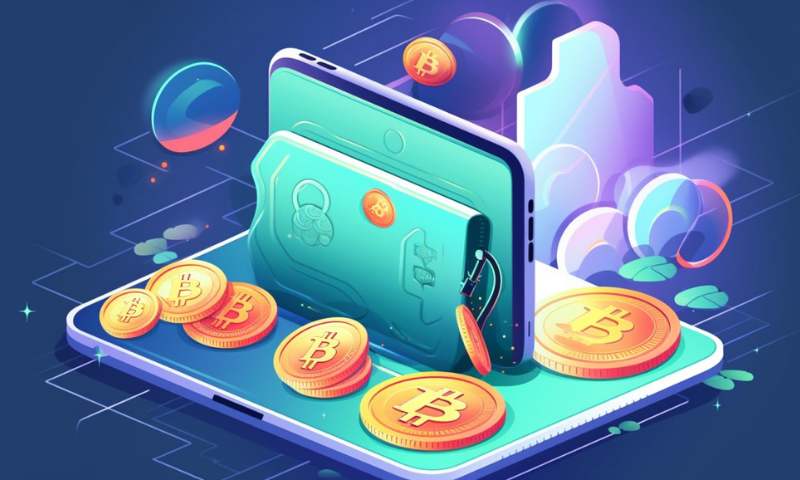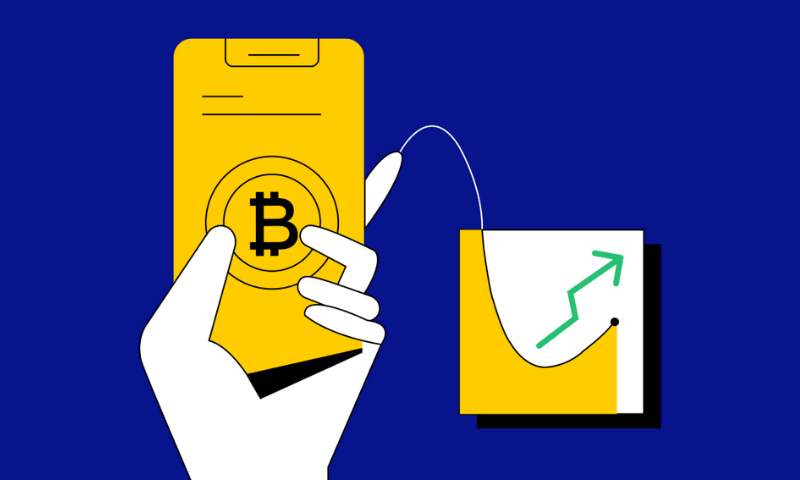In the ever-evolving realm of digital currency, guarding your assets is crucial. Best practices for managing your cryptocurrency holdings securely involve more than just strong passwords. This guide lays out concrete steps to protect your investment from the ground up. We’ll start by building a robust security foundation, where I’ll show you how picking the right wallet means everything. Read on, and let’s make sure your digital wealth is as secure as Fort Knox!
Establishing a Robust Security Foundation for Cryptocurrency Holdings
Prioritizing Use of Secure Crypto Wallets
Let’s talk wallet safety, friends. Keeping your cryptos safe starts with a good wallet. Pick secure crypto wallets – that’s your main line of defense. Think of your digital money like treasure. You don’t just bury it; you lock it up tight.
So, what makes a wallet safe? Strong encryption, for one. It scrambles your data so thieves can’t make sense of it. Next, add two-factor authentication (2FA). It’s like a double door. Hackers must pass two checks, not just one.
Backup strategies are your safety net. Back up your wallet. Do it on different devices. A lost or broken device should not wipe out your coins.
Keep your eyes peeled for updates, too. Wallet software gets better over time. The updates fix holes that hackers might slip through.
Emphasizing Hardware Wallet Advantages for Long-Term Storage
Now, let’s chat hardware wallets. For coins you want to keep safe for a while, these are tops. Remember, they’re like vaults for your digital gold. Hardware wallets keep your crypto offline. That means away from the reach of online bandits.
The Ledger Nano and Trezor are big names here. Think of them like top-notch security guards for your coins. They turn your info into code that’s super hard to crack. And they pocket your private keys. No keys, no coin access. Remember that.
With hardware, say goodbye to worries over viruses and malware. These problems need an online hook. Your offline wallet won’t bite. Remember, even the most solid lock needs checking. Test your hardware wallet functions right to avoid panic later.
Always remember, in the crypto world, your smarts are your best tool. Be aware, stay up-to-date, and think security first for a worry-free digital money life.
Fortifying Account Security and Access
Implementing Two-Factor Authentication for Crypto Accounts
Locking down access to your crypto is critical. Start with two-factor authentication (2FA). It’s a second lock on your digital door, a must-have for any crypto holder. Not all 2FA tools are equal, though. Opt for an app or a hardware device over your phone number—these are much tougher for thieves to bypass.
2FA acts like a guard, checking two proofs of identity before letting anyone in. If someone steals your password, they still can’t get to your coins without also having your second factor. This reduces the risk of losing your digital wealth in a hack.
Remember, emails and texts can be intercepted. Use an authenticator app or a physical token instead. These generate a new code every few seconds. It’s like having an ever-changing secret handshake that only you and your account know.
Developing Resilient Backup Strategies for Crypto Assets
Backing up your crypto assets is as crucial as a life jacket on a boat. When a device fails or you forget a password, backup strategies are your safety line. First, back up your wallet seed phrase. This is a list of words, your master key to your crypto kingdom.
Write it down on paper and store it safely—think a safe or a deposit box, not just a desk drawer. But do more than one copy in places only you know about. No photos, no digital copies on cloud services. People often forget this till it’s too late.
For extra security, make a digital backup protected by heavy encryption. Only you should be able to crack open that safe. Keep these backups updated, especially after creating new wallets or transferring assets.
Stay ahead of bad luck, and always have a plan B. If a phone, computer, or hardware wallet gets lost or broken, your backup is your best friend. It gives you a map back to your digital gold.
Securing your crypto doesn’t just mean protection from hackers. It’s also a defense against accidents, mistakes, and unforeseen events. Even losing your phone won’t be as scary if you’ve got a solid backup strategy.
Remember:
- Use two-factor authentication with apps or hardware tokens.
- Don’t rely on just your phone number for 2FA.
- Write down your wallet seed, keep multiple secure copies.
- Encrypt digital backups, update them regularly.
These steps make it much tougher for anyone but you to access your digital treasure. You’ll sleep better, knowing you’ve built a fortress around your crypto. And if bad things happen, you’ll be ready—with keys in hand.
Protecting Your Assets in the Public Realm
Safe Crypto Exchange Practices and Phishing Scam Awareness
Watch out for tricks when you trade crypto. Always check websites and emails carefully. Stick to well-known exchanges. They have systems to keep your money safe. Be careful of messages that seem odd. These could be scams to take your crypto. Their goal is to fool you and take your password. If you’re not sure about a link, don’t click it. Use a trusted device and connection when you trade. This keeps your info safe.
Phishing scams are emails or messages that look real but aren’t. They want to trick you. They might say you need to fix your account. Or they offer free crypto. Don’t be fooled. Real exchanges don’t do this. Only use links you know are safe. Phishing scams often have small mistakes. They might misspell words or use the wrong logo. Check for this to stay safe.
Enhancing Software Wallet Security and Private Key Safeguards
Your software wallet needs a strong password. Also, don’t forget about your private key. This is like the master key to your digital coins. Keep it secret. Without it, anyone can take your crypto. Write it down and hide it well. You can’t get this key back if you lose it. So keep it in a couple of safe spots. Never tell anyone your key. Keep your computer clean of viruses. This helps protect your wallet. Use software that fights malware. This is bad software that can steal your key.
Security for your wallet is super important. It must be as tough as a bank’s. Your key gives you control over your money. So, it’s really powerful. Think of encrypting your wallet like building a safe. It keeps your coins secure. Some people even use special USB wallets. These are very hard for thieves to get into. By keeping your computer safe, it’s like locking up that safe.
Encrypting your wallet adds another layer of safety. It changes your data into a code. This code is super hard to crack. Use a strong password that’s hard to guess. This password is like the key to your safe. Don’t use easy passwords like “1234” or “password”. Make it tricky, with letters, numbers, and symbols.
Update your wallet software often. Software updates fix weak spots. These can let hackers in. By updating, you’re putting new locks on your safe. It’s one of the easiest ways to stay secure.
Keep your eyes open for danger and smart about where you click. Make strong passwords and keep your keys safe. Encrypt everything and update often. These steps make sure your crypto stays yours. You’ve worked hard for it. So make sure it’s protected.
Advanced Security Measures and Best Practices
Utilizing Multi-Signature Protection and Decentralized Finance Security
Let’s dive deep into the world of crypto safety. Imagine your digital wealth like a treasure chest. You wouldn’t hide it with just a simple lock, right? This is where multi-signature protection comes in. Think of it as needing several keys to open that chest. It adds layers to your defense, keeping hackers at bay. With multi-signature wallets, even if someone gets one key, they can’t access your treasure.
To set up multi-signature protection, you choose a certain number of people. These are your trusted key holders. To make a transaction, a majority of these people must agree. This is gold for security. It stops a single person from making sneaky moves with your funds.
Now, let’s talk decentralized finance, or “DeFi” for short. DeFi is the bold new world of finance without the middlemen. Banks take a back seat here. Instead, smart contracts on blockchain make the magic happen. But with new tech comes new risks. Smart contract safety means checking the contract does what it should. And nothing more. Many eyes on the code make for fewer sneaky bugs.
Regularly Updating Wallet Software and Employing Secure Mobile Wallet Practices
Keep your wallet sharp. Outdated software is like an old lock on your door. Easy to pick for a seasoned thief. Wallet updates patch up security holes. This keeps your digital money safe. Think of it as adding steel to your door frame. It’s something you should do the moment an update pops up. It’s your first line of defense.
Mobile wallets let you carry your crypto in your pocket. Handy, right? But if your phone is compromised, your crypto is at risk. Secure mobile wallet practices start with a strong passcode. Skip those easy “1234” codes. Use something unique. Better yet, use biometric locks like your fingerprint. They’re hard to copy. Also, always log out when you’re done. Like locking your car doors, it’s simple but keeps thieves out.
Oh, and one more thing, watch out for public Wi-Fi when you’re on your phone. These networks can be full of bad actors waiting to swoop in. Consider using a VPN to mask your online steps. It’s like throwing on a cloak in a crowd of pickpockets. They can’t nab what they can’t see.
Securing your crypto isn’t just about fancy tech. It’s about making smart choices every day, staying sharp and aware. Always question, always update, and keep those keys safe. It’s your digital wealth, protect it like a dragon hoards gold—fiercely and wisely.
In this post, we covered key ways to keep your crypto safe. It’s all about strong security from the start. Use safe wallets and lean on hardware options for keeping your long-term crypto locked down.
We then talked about beefing up your account guts. This means always using two-factor authentication and having a solid backup plan for your digital cash.
Next, we hit on how to stay sharp in public spaces. Stick to safe trading habits and know how to spot a con. Keep your software wallet tight and never let your private keys slip.
Last, we dove into pro tips for extra safety. Think about using more than one signature to guard your funds and dive into the tech side of decentralized finance. Keep your wallet software fresh and play it smart with your mobile tech.
Staying ahead in crypto means playing it safe every step of the way. Keep these tips in mind and you’re set to keep your digital treasure out of harm’s way.
Q&A :
What are the top strategies for securing cryptocurrency investments?
To safeguard digital assets effectively, it is vital to implement strong security measures. Utilize hardware wallets for offline storage, enable two-factor authentication, use strong, unique passwords, and consider multi-signature wallets. Moreover, staying informed about the latest security trends in the crypto space can also significantly mitigate potential risks.
How can I protect my crypto holdings from cyber threats and hacks?
Proactively defending your cryptocurrency holdings from online vulnerabilities involves a multi-faceted approach. Ensure the security of your internet connection, be cautious of phishing attempts, and only interact with reputable exchanges and services. Regularly updating software and backing up private keys can also provide a robust shield against cyber threats.
What is the safest method to store my cryptocurrency long-term?
For secure long-term storage of cryptocurrencies, cold storage options like hardware wallets and paper wallets are recommended. These methods keep your assets offline away from potential online hacks. Additionally, using a dedicated hardware device or creating a secure paper wallet and storing it in a safe or safety deposit box can be key to preserving your holdings for the future.
What should I do if my cryptocurrency is stolen or compromised?
If you find your cryptocurrency holdings have been compromised, act immediately by moving any remaining funds to a new, secure wallet. Report the theft to cryptocurrency exchange(s), local authorities, and consider consulting with a cyber-security expert. It’s also crucial to analyze and understand how the breach occurred to prevent future vulnerabilities.
Are there any industry standards for cryptocurrency security practices?
The cryptocurrency industry, while relatively new, does have emerging standards for security practices. Organizations like the CryptoCurrency Security Standard (CCSS) and guidelines provided by the National Institute of Standards and Technology (NIST) offer frameworks for the secure creation, maintenance, and handling of cryptocurrencies. Following these recognized practices can substantially enhance the security of your holdings.






